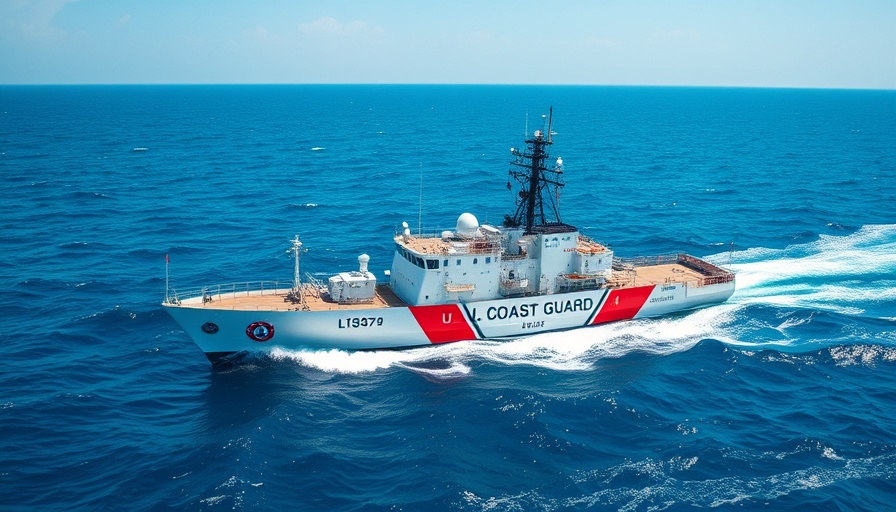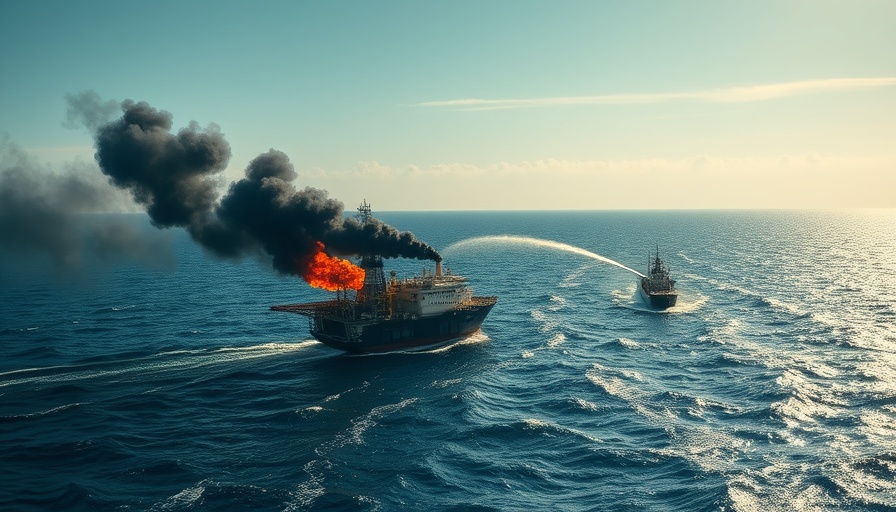
U.S. Coast Guard Makes Waves Against Illegal Fishing
The U.S. Coast Guard Cutter Alert has returned home to Cape Canaveral after a robust 55-day mission aimed at combatting illegal fishing in the Gulf of America. This 210-foot Reliance-class cutter plays a crucial role in protecting the marine resources of the United States, ensuring that only licensed activities occur within its Exclusive Economic Zone. This is of paramount importance given the rising threats posed by illegal, unreported, and unregulated (IUU) fishing—a challenge that goes beyond just environmental concerns, intertwining with national security and economic interests.
Why This Mission Matters
The mission of the Alert was not solely about enforcing fishing regulations; it embodied the values of stewardship and protection over our shared natural resources. Illegal fishing operations can endanger marine environments, threaten local fisheries, and destabilize economies that rely heavily on these resources. According to Coast Guard representatives, IUU fishing negatively impacts approximately $24 billion dollars in global fishing revenues annually, while also undermining sustainable fisheries management. The Coast Guard’s relentless efforts help safeguard livelihoods and preserve marine biodiversity.
Bringing Justice to the Open Waters
During the operation, the crew of the Alert conducted law enforcement boardings to ensure compliance with federal laws. This included a notable incident on April 20, when they collaborated with the Coast Guard Cutter Jacob Poroo and Coast Guard Station South Padre Island to intercept a lancha with three Mexican fishermen who were illegally fishing in U.S. waters. Such collaborations demonstrate the interconnectedness of U.S. regional authorities in maintaining maritime law and order.
Confronting the Underlying Issues
While the Coast Guard's actions contribute directly to halting illegal fishing, they are also addressing broader issues related to illegal immigration and drug smuggling often linked to these activities. Fishermen engaging in IUU practices may also be involved in smuggling operations, creating a dual challenge for law enforcement agencies. By focusing on illegal fishing, the Coast Guard can combat other related illicit activities simultaneously, creating a safer environment for both marine life and coastal communities.
Marine Resource Conservation: A Collective Challenge
The effective management of marine resources requires more than just enforcement efforts; it also hinges on international collaboration. Many countries, including those in Central America, also face similar challenges regarding illegal fishing activities. Hence, cooperative strategies and agreements can significantly enhance protective measures across borders. The Coast Guard has been actively engaged in fostering partnerships aimed at shared resources and intelligence, directly contributing to effective maritime governance.
A Call to Action: Support for Sustainable Practices
As the Coast Guard Cutter Alert resumes its everyday functions at Port Canaveral, it serves as a commendable reminder of the importance of lawful fishing and our role in marine conservation. Individuals interested in protecting our oceans can take actionable steps—such as supporting sustainable seafood certifications and advocating for policies against illegal fishing. Such efforts are vital in preserving marine ecosystems for generations to come.
 Add Row
Add Row  Add
Add 




 Add Row
Add Row  Add
Add 

Write A Comment